Latest Posts by ship-happenss - Page 4

Lights of Java via NASA https://ift.tt/2wnzAiL
Someone: you should come to this party! Me: I have an exam in 2 months

Guide to Zero Waste as a college student.
I know. Just the thought of it made me scared. When I first started a year ago, I dived head first and told myself if I didn’t start now, I would never start. It didn’t matter if I would make a mistake, I had to start and then learn from my mistakes.
Boi did I make a lot of mistakes. But I learned. Here are some steps you can take to become zero waste.
1. Look at your trash.
What is in there? Plastic bottles? Straws? Jars? Wrappers? Foam containers of that one take away? Take a look at your trash and determine why you are producing that amount of trash.
2. Plan.
After figuring out what’s in your trash think about what you can do to stop making it. I like to guide myself with these three questions:
Do I really need this in my life? If not, then it is a good time to stop buying/ using said thing.
If I do need it, is there an eco-friendly alternative? Do they sell it or should I look for a DIY-option? The important thing is not to get stuck just because you can’t get it!
What habits can I adapt to make transitioning easier for me?
3. Set goals.
At first, I dived right into it. Which was probably not the best option. After some months I realized it would be better if I took one step at a time. Goals are a good way to get you there but the only way goals can actually work is of they are smart. These are some of the goals I had when I started.
Every day I must fill my reusable water bottle and take it everywhere with me. I am not allowed to drink from any plastic cups, straws any other form of packaging that is recyclable but not necessarily reusable.
Every day I must go out with my reusable straw and my utensils. In order not to forget them, I have to always keep a pair on each of my bags.
4. Keep track.
I will admit: I am not perfect. But keeping tracks of what I do with zero waste helps me see what I can do better. And that’s what this movement is. What can we do to get a bit closer to producing no waste? Some people get discouraged but this personally encourages me to work harder.
So are you planning on becoming zero waste? Are you already part of the movement? Let me know!
-Shirou



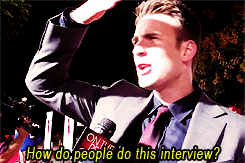

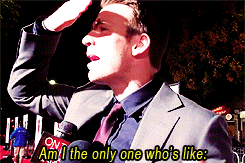
#chris evans #in where he is actually steve rogers

Messier 20 and 21 via NASA https://ift.tt/2BI0maN
in honor of her passing, types as carrie fisher quotes please?
ISTJ: “I don’t want to be thought of as a survivor because you have to continue getting involved in difficult situations to show off that particular gift, and I’m not interested in doing that anymore.”ISFJ: “I act like someone in a bomb shelter trying to raise everyone’s spirits.”INFJ: “There are definitely some things that are only mine. I am someone who dreams at night, and you don’t know what I’m dreaming.”INTJ: “I am a spy in the house of me. I report back from the front lines of the battle that is me. I am somewhat nonplused by the event that is my life.”ISTP: “I was street smart, but unfortunately the street was Rodeo Drive.”ISFP: “I don’t want my life to imitate art, I want my life to be art.”INFP: “I don’t think Christmas is necessarily about things. It’s about being good to one another, it’s about the Christian ethic, it’s about kindness.”INTP: “Life is a cruel, horrible joke and I am the punch line.” ESTP: “I shot through my twenties like a luminous thread through a dark needle, blazing toward my destination: Nowhere.”ESFP: "Instant gratification takes too long”ENFP: “Someone has to stand still for you to love them. My choices are always on the run.”ENTP: “If my life wasn’t funny, it would just be true, and that is unacceptable.”ESTJ: “There’s no room for demons when you’re self-possessed.”ESFJ: “Two of the saddest words in the English language are, ‘What party?’ And L.A. is the 'What party?’ capital of the world.”ENFJ: “Resentment is like drinking poison and waiting for the other person to die.”ENTJ: “There is no point at which you can say, 'Well, I’m successful now. I might as well take a nap.’”

“MOON DRIVE”



Electric “Wallpaper”
Actual advice on how to study for engineering courses from a first year student
Okay so I just finished my first semester in university and lets just say I’ve got to change my whole learning/studying style to be able to survive here. Here are some of the things I’ve learnt to do and will be doing in second semester:
1. Start backwards:

I highschool, you try to learn the subject by going to class, listening to the teacher, then going home, reading the textbook, then doing the homework, then making notes, then studying for the final. In engineering, you have to do this backwards: You will realize that you are going to be basically teaching yourself the content one way or another soon before the finals, so better start now. First, go through the past exams and past papers - make a list of all the major topics covered (example: if in an electrical circuits course, a question on a past final exam is “find the equivalent circuit using thevenin’s theorem” then write Thevenin’s theorem as a topic to be learned). Then go on youtube and find videos that explain each of these topics to you and make rough notes on these topics. (Reblog if you want me to make a master list of all the youtubers that teach engineering really well). Then go through he textbook and find sample questions not he theorem/topic you learnt off of youtube, and solve them. Then write your doubts in a notebook. Then go to class and have two notebooks open : one where you are taking notes of what the prof is saying, and one which has your practice problems solved, and see if the prof clarifies your doubts in the lecture. The lecture should be review of what you learnt at home!!!! Then, after class go to the prof and clarify any doubts. Then go home and make final notes on the topic. I like to make notes on cue cards (more on this later). Then go back to the final exam and see if you can solve the problem.
2. Make cue cards:

I like to get index cards and write a short note on how to solve each type of question I am likely to see on a final exam on each question card. Example: one cue card for “how to find resistance using wheatstone bridge” . I link the cue cards with a clip and its easier to carry the around and study.
3. Get pretty notebooks and organize your stationary. Its easier to stay focused when everything is pretty.


Life with 3 dogs, I tell ya! I don’t have much time for reading these days, but life, right now, is full of fluffy cuddles and tail wags. I wouldn’t have it any other way 😊
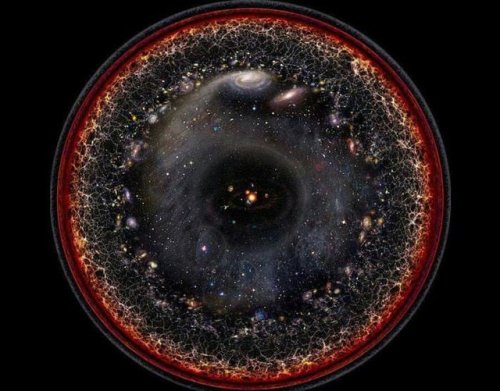
The entire observable universe squeezed into one image by NASA.
I hate it when people say technology is taking away kids’ childhoods If anything, it’s actually giving kids more of an opportunity to let their imagination out
A lot of times when I let kids play on my phone, they go for the drawing app. I watched a girl on the bus write a silly poem about her friends and then laugh as she made Siri read it I hear children say to their friends “hey, FaceTime me later” because they still want to talk face to face even when they’re far away. I see kids sitting, who would feel lonely and ignored if it weren’t for the fact that they’re texting their friends who are far away. Children still climb trees. They might just take a selfie from the top to show off how high they’ve gotten. They can immediately read the next book of their favorite series on their Kindles. Most kids would still be up for a game of cops and robbers. Or maybe they’d google rules to another game they haven’t played yet. When children wonder why the sky is blue, they don’t get an exasperated “I don’t know” from tired adults. They can go on Wikipedia and read about light waves and our atmosphere. They show off the elaborate buildings they created on Minecraft.
Technology isn’t ruining childhoods, it’s enhancing them.
MBTI as Monty Python and The Holy Grail Quotes
INFP: Are you suggesting coconuts migrate?
ESTJ: Now go away or I will taunt you a second time
ENFJ: (After noticing that he has no limbs left) All right, we’ll call it a draw.
INFJ: Our King? Well I didn’t vote for you!!
ESFP: Your Mother was a Hamster, and your Father smelt of Elderberries!
ENTJ: Oh, stop your whining. First we kill him, then we have biscuts and tea.
ISTJ: WHAT is the airspeed velocity of an unladen swallow?
ISTP: Then shalt thou count to three, no more, no less. Three shall be the number thou shalt count, and the number of the counting shall be three. Four shalt thou not count, neither count thou two, excepting that thou then proceed to three. Five is right out!
ISFJ: Oh, look. There’s some lovely filth over here.
ENTP: Help, I’m being oppressed. Come and see the violence inherent in the system.
ESFJ: ‘Tis but a scratch.
INTJ: Listen. Strange women lying in ponds distributing swords is no basis for a system of government. Supreme executive power derives from a mandate from the masses, not some farcical aquatic ceremony.
ENFP: “What is your favourite colour?”
Red!… I mean blue! (falls down the crevice screaming)
INTP: It’s not a question of where he grips it! It’s a simple question of weight ratios! A five ounce bird could not carry a one pound coconut.
ESTP: What are you going to do, bleed on me?
ISFP: On second thought, let’s not go to Camelot. It is a silly place.

Bookworms be like...
Me: I have to go out for just five minutes
Me: I'll take 10 books with me, who knows what might happen
HOW TO BOOK SHOP WITH A BOOKWORM
enter store
keep eyes on your bookworm at all times
wow ok you lost them
they’re gone forever now

Types stereotype at school/college (sarcastic)
MBTI in college (stereotypical/sarcastic)
I’ll do college. This turned out to be more stereotypical than sarcastic :/
INFJ - Sits around the campus to people-watch for hours, makes friends with the campus cat, realizes they are actually the campus cat, actually makes an effort to cook
INTJ - Is graduating a year early because they take twice the normal course load even during the summer, somehow still has time to read books that are not required textbooks
INTP - Lives in the computer lab, always wears the same clothes (because they’re too lazy to go home to shower), forgets to go to classes and exams, miraculously stays up for 72 hrs straight before essay due dates
INFP - Goes on a quest to find themselves, changes majors 5 times, enters an existential crisis and broods about life for months, stops caring about the outside world and walks into every single pole and door on campus
ISFJ - Wanders around the campus with neatly organized binders, color-codes post-its, and colorful gel pens, could open a stationary store but they’re way too attached to their pens
ISFP - Sneaks into the science lab to rescue all the lab animals, opens an animal rights club, finds their true calling by becoming a social activist, runs a rally every week on campus
ISTP - Goes to classes but always sits at the back and sleeps, tries to make their own beer as an experiment, joins a band, forgets they were in school
ISTJ - Has tons of “friends” who constantly ask to borrow their very organized lecture notes, low key enjoys the popularity
ENTP - Makes money off ISTJ’s notes by photocopying and selling them to other students, becomes a full time entrepreneur, drops out
ENFP - Keeps failing exams because they get bored and doodle all over the essay questions, switches majors 20 times, is undeclared until 4th year
ENTJ - Gets an internship during 2nd year, job offers during the 3rd year, is reluctant to come back to school but unfortunately they do need those grades for law school
ENFJ - Volunteers at charities around the city, can be seen at student networking events, joins a bunch of student clubs and ends up running all of them
ESFP - Is constantly hungover or constantly high, crashes parties as a hobby, can never be found inside their dorm room
ESTP - Breaks into school at night to drink because just taking classes is not challenging enough, streaks around the campus when final exams are done
ESTJ - An honor student with straight A’s, reads all textbooks since the first month, argues with professors for getting some facts wrong, ends up being a Teaching Assistant
ESFJ - Is in college for the sole purpose of making friends and hanging out with them, succeeds, has at least 10 friends in every class, holds house parties with 100+ people, everyone mistakes their house for a sorority/frat
-eilamona[ MBTI Merch | Support eilamona on patreon ]
[ send sarcastic asks | previous sarcastic answers ]

Glowing Elements in the Soul Nebula via NASA https://ift.tt/2nTX22k
Why Bennu? 10 Reasons
After traveling for two years and billions of kilometers from Earth, the OSIRIS-REx probe is only a few months away from its destination: the intriguing asteroid Bennu. When it arrives in December, OSIRIS-REx will embark on a nearly two-year investigation of this clump of rock, mapping its terrain and finding a safe and fruitful site from which to collect a sample.
The spacecraft will briefly touch Bennu’s surface around July 2020 to collect at least 60 grams (equal to about 30 sugar packets) of dirt and rocks. It might collect as much as 2,000 grams, which would be the largest sample by far gathered from a space object since the Apollo Moon landings. The spacecraft will then pack the sample into a capsule and travel back to Earth, dropping the capsule into Utah’s west desert in 2023, where scientists will be waiting to collect it.
This years-long quest for knowledge thrusts Bennu into the center of one of the most ambitious space missions ever attempted. But the humble rock is but one of about 780,000 known asteroids in our solar system. So why did scientists pick Bennu for this momentous investigation? Here are 10 reasons:
1. It’s close to Earth

Unlike most other asteroids that circle the Sun in the asteroid belt between Mars and Jupiter, Bennu’s orbit is close in proximity to Earth’s, even crossing it. The asteroid makes its closest approach to Earth every 6 years. It also circles the Sun nearly in the same plane as Earth, which made it somewhat easier to achieve the high-energy task of launching the spacecraft out of Earth’s plane and into Bennu’s. Still, the launch required considerable power, so OSIRIS-REx used Earth’s gravity to boost itself into Bennu’s orbital plane when it passed our planet in September 2017.
2. It’s the right size

Asteroids spin on their axes just like Earth does. Small ones, with diameters of 200 meters or less, often spin very fast, up to a few revolutions per minute. This rapid spinning makes it difficult for a spacecraft to match an asteroid’s velocity in order to touch down and collect samples. Even worse, the quick spinning has flung loose rocks and soil, material known as “regolith” — the stuff OSIRIS-REx is looking to collect — off the surfaces of small asteroids. Bennu’s size, in contrast, makes it approachable and rich in regolith. It has a diameter of 492 meters, which is a bit larger than the height of the Empire State Building in New York City, and rotating once every 4.3 hours.
3. It’s really old

Bennu is a leftover fragment from the tumultuous formation of the solar system. Some of the mineral fragments inside Bennu could be older than the solar system. These microscopic grains of dust could be the same ones that spewed from dying stars and eventually coalesced to make the Sun and its planets nearly 4.6 billion years ago. But pieces of asteroids, called meteorites, have been falling to Earth’s surface since the planet formed. So why don’t scientists just study those old space rocks? Because astronomers can’t tell (with very few exceptions) what kind of objects these meteorites came from, which is important context. Furthermore, these stones, that survive the violent, fiery decent to our planet’s surface, get contaminated when they land in the dirt, sand, or snow. Some even get hammered by the elements, like rain and snow, for hundreds or thousands of years. Such events change the chemistry of meteorites, obscuring their ancient records.
4. It’s well preserved

Bennu, on the other hand, is a time capsule from the early solar system, having been preserved in the vacuum of space. Although scientists think it broke off a larger asteroid in the asteroid belt in a catastrophic collision between about 1 and 2 billion years ago, and hurtled through space until it got locked into an orbit near Earth’s, they don’t expect that these events significantly altered it.
5. It might contain clues to the origin of life

Analyzing a sample from Bennu will help planetary scientists better understand the role asteroids may have played in delivering life-forming compounds to Earth. We know from having studied Bennu through Earth- and space-based telescopes that it is a carbonaceous, or carbon-rich, asteroid. Carbon is the hinge upon which organic molecules hang. Bennu is likely rich in organic molecules, which are made of chains of carbon bonded with atoms of oxygen, hydrogen, and other elements in a chemical recipe that makes all known living things. Besides carbon, Bennu also might have another component important to life: water, which is trapped in the minerals that make up the asteroid.
6. It contains valuable materials

Besides teaching us about our cosmic past, exploring Bennu close-up will help humans plan for the future. Asteroids are rich in natural resources, such as iron and aluminum, and precious metals, such as platinum. For this reason, some companies, and even countries, are building technologies that will one day allow us to extract those materials. More importantly, asteroids like Bennu are key to future, deep-space travel. If humans can learn how to extract the abundant hydrogen and oxygen from the water locked up in an asteroid’s minerals, they could make rocket fuel. Thus, asteroids could one day serve as fuel stations for robotic or human missions to Mars and beyond. Learning how to maneuver around an object like Bennu, and about its chemical and physical properties, will help future prospectors.
7. It will help us better understand other asteroids

Astronomers have studied Bennu from Earth since it was discovered in 1999. As a result, they think they know a lot about the asteroid’s physical and chemical properties. Their knowledge is based not only on looking at the asteroid, but also studying meteorites found on Earth, and filling in gaps in observable knowledge with predictions derived from theoretical models. Thanks to the detailed information that will be gleaned from OSIRIS-REx, scientists now will be able to check whether their predictions about Bennu are correct. This work will help verify or refine telescopic observations and models that attempt to reveal the nature of other asteroids in our solar system.
8. It will help us better understand a quirky solar force …

Astronomers have calculated that Bennu’s orbit has drifted about 280 meters (0.18 miles) per year toward the Sun since it was discovered. This could be because of a phenomenon called the Yarkovsky effect, a process whereby sunlight warms one side of a small, dark asteroid and then radiates as heat off the asteroid as it rotates. The heat energy thrusts an asteroid either away from the Sun, if it has a prograde spin like Earth, which means it spins in the same direction as its orbit, or toward the Sun in the case of Bennu, which spins in the opposite direction of its orbit. OSIRIS-REx will measure the Yarkovsky effect from close-up to help scientists predict the movement of Bennu and other asteroids. Already, measurements of how this force impacted Bennu over time have revealed that it likely pushed it to our corner of the solar system from the asteroid belt.
9. … and to keep asteroids at bay

One reason scientists are eager to predict the directions asteroids are drifting is to know when they’re coming too-close-for-comfort to Earth. By taking the Yarkovsky effect into account, they’ve estimated that Bennu could pass closer to Earth than the Moon is in 2135, and possibly even closer between 2175 and 2195. Although Bennu is unlikely to hit Earth at that time, our descendants can use the data from OSIRIS-REx to determine how best to deflect any threatening asteroids that are found, perhaps even by using the Yarkovsky effect to their advantage.
10. It’s a gift that will keep on giving
Samples of Bennu will return to Earth on September 24, 2023. OSIRIS-REx scientists will study a quarter of the regolith. The rest will be made available to scientists around the globe, and also saved for those not yet born, using techniques not yet invented, to answer questions not yet asked.
Read the web version of this week’s “Solar System: 10 Things to Know” article HERE.
Make sure to follow us on Tumblr for your regular dose of space: http://nasa.tumblr.com.

SAY IT LOUDER FOR THE PEOPLE IN THE BACK
if a professor brags about how hard it is to pass their class then drop the class. they should not be proud of being bad at conveying information to students. you’re not paying thousands of dollars to fail. find a professor that wants you to pass.

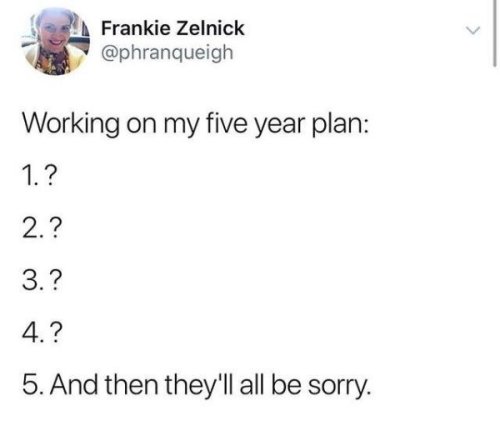
Life goals in 1 picture

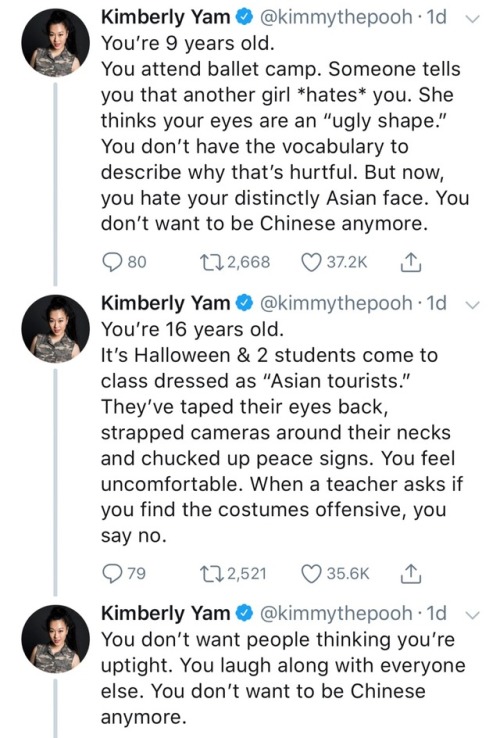

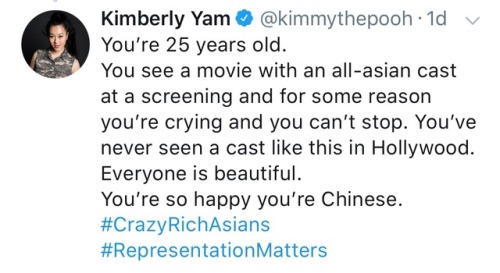
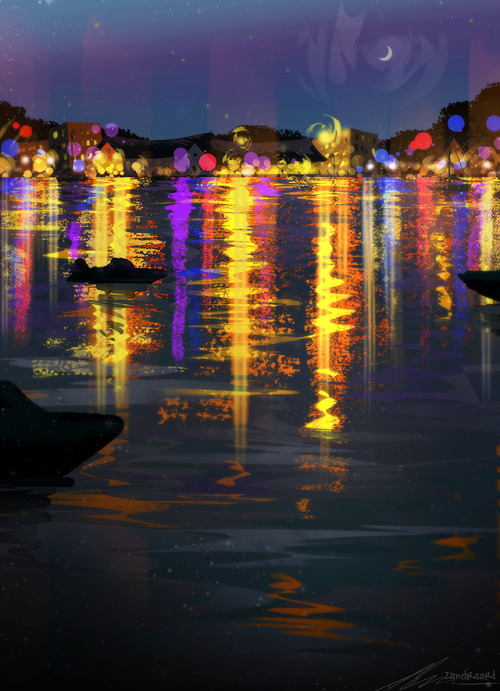
kaleidoscope
what are these “shower thoughts” everybody’s talking about, i dont think about anything in the shower, my mind is completely blank as i douse my body in scalding hot water and stare at a wall
*curtsies* So, I really, REALLY don't want to offend anyone, Duke, but a question has been bothering me for a really long time and I was afraid to ask it because I didn't want to piss off anyone and since you're really eloquent and knowledgeable, I thought I'd ask you. So here it goes: you always say that arts and sciences are equally important, but how can analysing Chaucer or ecopoetics or anything similar compare to biomedicine or engineering in improving human lives? I'm genuinely curious!
*Curtsies* All right. Let me tell you a story:
When I lived in London, I shared a flat with a guy who was 26 years old, getting his PhD in theoretical physics. Let’s call him Ron. Ron could not for the life of him figure out why I was wasting my time with an MA in Shakespeare studies or why my chosen method of providing for myself was writing fiction. Furthermore, it was utterly beyond him why I should take offense to someone whose field literally has the word “theoretical” in the title ridiculing the practical inefficacy of art. My pointing out that he spent his free time listening to music, watching television, and sketching famous sculptures in his notebook somehow didn’t convince him that art is a necessary part of a healthy human existence.
Three other things that happened with Ron:
I came home late one night and he asked where I’d been. When I told him I’d been at a friend’s flat for a Hanukkah celebration, he said, “What’s Hanukkah?” I thought he was joking. He was not.
A few weeks later, I came downstairs holding a book. He asked what I was reading and when I said, “John Keats,” he (and the three other science grad students in the room) did not know who that was. This would be like me not knowing who Thomas Edison is.
One night we got into an argument about the issue of gay marriage, and at one point he actually said, “It doesn’t affect me so I don’t see why I should care about it.”
Now: If Ron had ever read Number the Stars, or heard Ode to a Nightingale, or been to a performance of The Laramie Project, do you think he ever would have asked any of these questions?
Obviously this is an extreme example. This guy was amazingly ignorant, but he was also the walking embodiment of the questions you’re asking. What does art matter compared with something like science, that saves people’s lives? Here’s the thing: There’s a flaw in the question, because art saves lives, too. Maybe not in the same “Eureka, we’ve cured cancer!” kind of way, but that doesn’t make it any less important. Sometimes the impact of art is relatively small, even invisible to the naked eye. For example: as a young teenager I was (no exaggeration) suicidally unhappy. Learning to write is what kept me (literally and figuratively) off the ledge. But I was one nameless teenager; in the greater scheme of things, who cares? Fair enough. Let’s talk big picture. Let’s talk about George Orwell. George Orwell wrote books, the two most famous of which are Animal Farm and 1984. You probably read at least one of those in high school. Why do these books matter? Because they’re cautionary tales about limiting the power of oppressive governments, and their influence is so pervasive that the term “Big Brother,” which refers to the omniscient government agency which watches its citizens’ every move in 1984, has become common parlance to refer to any abuse of power and invasion of privacy by a governmental body. Another interesting fact, and the reason I chose this example: sales of 1984 fucking skyrocketed in 2017, Donald Trump’s first year in office. Why? Well, people are terrified. People are re-reading that cautionary tale, looking for the warning signs.
Art, as Shakespeare taught us, “holds a mirror up to nature.” Art is a form of self-examination. Art forces us to confront our own mortality. (Consider Hamlet. Consider Dylan Thomas.) Art forces us to confront inequality. (Consider Oliver Twist. Consider Audre Lorde. Consider A Raisin in the Sun. Consider Greta Gerwig getting snubbed at the Golden Globes.) Art forces us to confront our own power structures. (Consider Fahrenheit 451. Consider “We Shall Overcome.” Consider All the President’s Men. Consider “Cat Person.”) Art reminds us of our own history, and keeps us from repeating the same tragic mistakes. (Consider The Things They Carried. Consider Schindler’s List. Consider Hamilton.) Art forces us to make sense of ourselves. (Consider Fun House. Consider Growing Up Absurd.) Art forces us to stop and ask not just whether we can do something but whether we should. (Consider Brave New World. Consider Cat’s Cradle.) You’re curious about ecopoetics? The whole point is to call attention to human impact on the environment. Some of our scientific advances are poisoning our planet, and the ecopoetics of people like the Beats and the popular musicians of the 20th century led to greater environmental awareness and the first Earth Day in 1970 . Art inspires change–political, social, environmental, you name it. Moreover, art encourages empathy. Without books and movies and music, we would all be stumbling around like Ron, completely ignorant of every other culture, every social, political, or historical experience except our own. Since we have such faith in science: science has proved that art makes us better people. Science has proved that people who read fiction not only improve their own mental health but become proportionally more empathetic. (Really. I wrote an article about this when I was working for a health and wellness magazine in 2012.) If you want a more specific example: science has proved that kids who read Harry Potter growing up are less bigoted. (Here’s an article from Scientific American, so you don’t have to take my word for it.) That is a big fucking deal. Increased empathy can make a life-or-death difference for marginalized people.
But the Defense of Arts and Humanities is about more than empirical data, precisely because you can’t quantify it, unlike a scientific experiment. Art is–in my opinion–literally what makes life worth living. What the fuck is the point of being healthier and living longer and doing all those wonderful things science enables us to do if we don’t have Michelangelo’s David or Rimbaud’s poetry or the Taj Mahal or Cirque de Soleil or fucking Jimi Hendrix playing “All Along the Watchtower” to remind us how fucking amazing it is to be alive and to be human despite all the terrible shit in this world? Art doesn’t just “improve human lives.” Art makes human life bearable.
I hope this answers your question.
To it I would like to add: Please remember that just because you don’t see the value in something doesn’t mean it is not valuable. Please remember that the importance of science does not negate or diminish the importance of the arts, despite what every Republican politician would like you to believe. And above all, please remember that artists are every bit as serious about what they do as astronomers and mathematicians and doctors, and what they do is every bit as vital to humanity, if in a different way. Belittling their work by questioning its importance, or relegating it to a category of lesser endeavors because it isn’t going to cure a disease, or even just making jokes about how poor they’re going to be when they graduate is insensitive, ignorant, humiliating, and, yes, offensive. And believe me: they’ve heard it before. They don’t need to hear it again. We know exactly how frivolous and childish and idealistic and unimportant everyone thinks we are. Working in the arts is a constant battle against the prevailing idea that what you do is useless. But it’s bad enough that the government is doing its best to sacrifice all arts and humanities on the altar of STEM–we don’t need to be reminded on a regular basis that ordinary people think our work is a waste of time and money, too.
Artists are exhausted. They’re sick and tired of being made to justify their work and prove the validity of what they do. Nobody else in the world is made to do that the way artists are. That’s why these questions upset them. That’s why it exasperates me. I have to answer some version of this question every goddamn day, and I am so, so tired. But I’ve taken the effort to answer it here, again, in the hopes that maybe a couple fewer people will ask it in the future. But even if you’re not convinced by everything I’ve just said, please try to find some of that empathy, and just keep it to yourself.
Too beautiful not to reblog




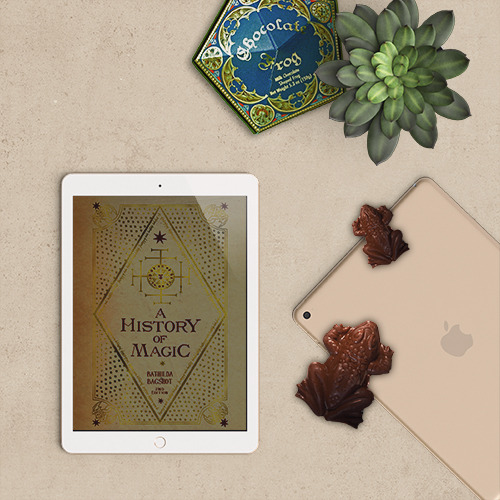

Study Aesthetic || Ravenclaw x SLYTHERIN VERSION x